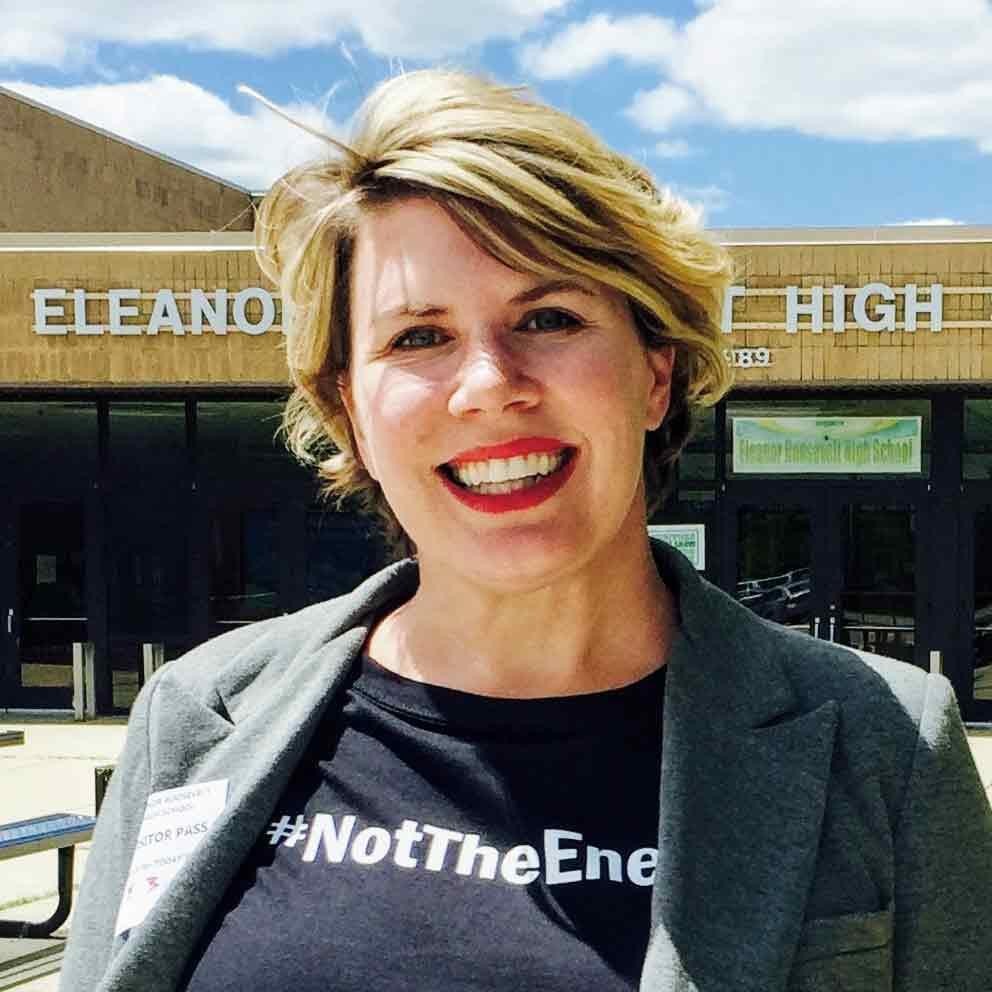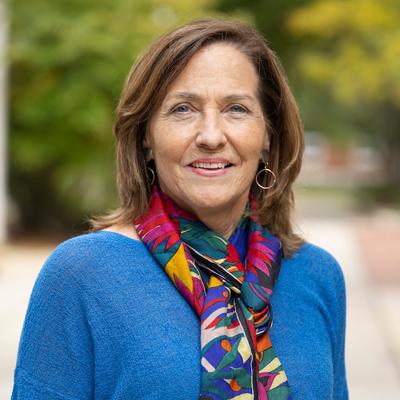Media, Self and Society
The impact of media and technology on the world
Introduction
Print, televised and social media impact every facet of our lives. Yet to what extent are we aware of how they affect us and our view of the world?
Media, Self and Society analyzes the role that various forms of media play in society, prioritizing critical thinking about media production and consumption. Students assess the source, message and meaning of different modes of media, examining:
- The effects of social media on our self-perception, relationships and beliefs;
- Viral deception and misinformation online; and
- The ways in which news and entertainment media represent—or misrepresent—marginalized communities.
Students take part in discussions; create media, from TikTok videos to infographics, that focus on self-exploration and civic engagement; and learn from working journalists, media experts and other guest speakers. The goal: to become active, rather than passive, in our interactions with media.
The Media program welcomes students of all majors and provides critical thinking and analysis skills fundamental to all career endeavors.
Colloquium and Lecture Topics
- Media transformation: The disappearing newspaper
- The psychology of advertising
- Media and violence: The role of video games
- Technology and the music industry
I have had the opportunity to explore my interests through hands-on experiences while also developing my communication skills. I am so grateful to be a part of a community that not only encourages me to be myself but also challenges me to be the best version of it.
Other Learning Opportunities
Students get a real-world perspective on the media—both what it’s like to work in the media and the impacts of the media on society—through:
- Field trips to media outlets and cultural sites, such as NBC4 Washington studios, NPR headquarters and the National Museum of African American History and Culture;
- Visits to various news studios and the 9/11 Memorial and Museum during our annual trip to New York City; and
- Guest speakers, particularly working professionals in journalism, advertising, technology and public relations.
During their sophomore year, students fulfill a practicum requirement, which allows them to gain professional experience in their chosen fields. Past Media students have:
- Written for The Diamondback campus newspaper;
- Broadcast sports games with WMUC, the campus radio station;
- Worked on a political campaign; and
- Interned at Microsoft.
In all cases, students were able to apply the analytical skills they learned in the program and assess the role that various media played in that organization.
Curriculum Overview
Over the two-year program experience (four semesters), students will complete 2 supporting courses, totaling 6–8 credits, that will count toward their Media Scholars citation. In most cases, these will also fulfill General Education requirements. Note that your Scholars courses—colloquium, practicum and supporting course(s)—will generally be in addition to any courses you take to satisfy major requirements.
The following table represents a typical two-year curriculum, but individual schedules may vary. Details about courses and requirements can be found on the Media Citation Checklist.
| SEMESTER | COURSES | CREDITS |
|---|---|---|
| Freshman Fall | Scholars Colloquium | 1 credit |
| Academic Writing | 3 credits | |
| 3–4 courses toward degree and major requirements (including possible supporting course) | 9–12 credits | |
| Freshman Spring | Scholars Colloquium | 1 credit |
| 4–5 courses toward degree and major requirements (including possible supporting course) | 12–15 credits | |
| Sophomore Fall | Analyzing Media Practice through Theory | 3 credits |
| 4–5 courses toward degree and major requirements (including possible supporting course) | 12–15 credits | |
| Sophomore Spring | Scholars Practicum (if not already taken in the fall) | 1–3 credits |
| 4–5 courses toward degree and major requirements (including possible supporting course if not already completed) | 12–15 credits |
Sponsoring College
Residence Hall
Cumberland Hall
Office Address
1122 Cumberland Hall
Office Phone
Faculty


Social Media Etc.
Media, Self and Society News
UNWIND Magazine Returns to Highlight Media Scholars and Terp Life at UMD–Expanded Spring 2026 Edition
COLLEGE PARK, MD – Following its successful relaunch in Spring 2025, UNWIND Magazine continues its momentum with the Spring 2026 issue, further amplifying the voices of students in the Media, Self and Society Scholars program at the University of Maryland. Building on last year’s return, the new edition expands the magazine’s storytelling with deeper reporting, fresh visual features and new perspectives on traditions and communities that shape campus life.Written, edited, and produced entirely by students, UNWIND remains a platform for emerging media professionals to explore the Terp experience–from untold campus stories to cultural touchstones to the evolving identity of Maryland today.
2025 Citation Class Honored at Awards Ceremony
College Park Scholars celebrated the best and the brightest of its most recent Citation class at its annual Citation and Awards ceremony recently. The 2025 Citation class, already packed with leaders in their academic fields of study and on campus, emerged undaunted by the challenges as one of the last high school classes during the pandemic, as productive community members in Scholars and at the University of Maryland.
First Steps at Fall Welcome
There were plenty of “Boots on the Ground” for move-in at the University of Maryland last week, but no need for fans in the hands, given the unseasonably refreshing 75-degree weather.Two College Park Scholars programs were captured in action on Service Day, a few days before classes began. Science and Global Change and Media, Self and Society had university photographers visit their service sites to see their impact in action. Read more about the more than 25 year old Service Day tradition by clicking here.
Media Scholars Launches New Media Literacy Display in CCC
COLLEGE PARK, MD –The College Park Scholars Media, Self and Society program is excited to announce the launch of a new media literacy display in the Cambridge Community Center (CCC).This display, supported by a grant from The Do Good Institute, features original content created by students in the Media Scholars program. The videos, photo essays, and infographics in the display will be updated regularly and viewed by hundreds of students who attend classes and study in the CCC every day. These pieces cover topics such as fact-checking, the role of journalism in a democracy, understanding media representations, and practical tips on how to make media work for you.
UNWIND Magazine Returns to Highlight Media Scholars, Campus Life at UMD
COLLEGE PARK, MD – After a hiatus driven by the COVID-19 pandemic, UNWIND Magazine is back with a pilot issue that showcases the talent of University of Maryland (UMD) Media, Self and Society (Media) Scholars and offers a fresh perspective on life on and around campus. Written and produced by students, the relaunched UNWIND brings a new look and lively content that dives into the heart of the Terp experience.The pilot issue features a diverse range of stories and visuals, including:
Scholars Honor Citation and Founders Circle Award Winners at Annual Ceremony
College Park Scholars, celebrating the 30th anniversary of the program's founding, honored the best and the brightest of its most recent Citation class at its most recent Citation and Awards ceremony. This tenacious class, filled with future changemakers and leaders, pushed through a challenging start to college that began during the pandemic to emerge as standouts in the classroom, in their communities, and at the University of Maryland.
